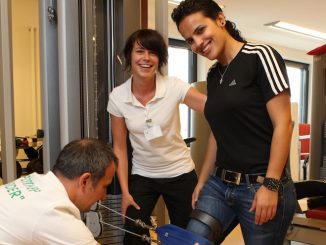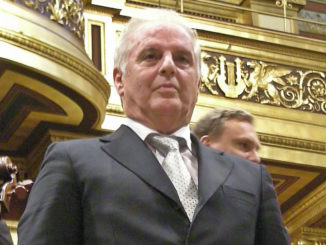
My name is Anwar Agbarih and I am 25 years old. I was born to a Palestinian family from a small town in the north of, what is today, Israel, but nevertheless the only language I had any exposure to both in daily life and in entertainment culture was Arabic. I learned both Hebrew and English in my Arabic language state school but didn’t consider either as necessary in my reality. I knew that I lived in Israel and knew that it was responsible for my grandparents moving from one hill to another. At age 19, in the pursuit of higher education I was forced to leave my town and move to Tel Aviv, the city of the “least racist Jews” as my father says.
The time came for me to begin my studies at Tel Aviv University, and this is where the story begins. Upon starting my first semester I was immediately confronted with my greatest fear: the Hebrew language. Suddenly my world had reversed; from a situation in which the dominant language in my life was Arabic to one where it was Hebrew, from seeing hardly any Jews to being surrounded mostly by Jews. They seemed nice. I started studying economics and communications, which wasn’t easy for me.

University lectures were one of the first scenarios in which I started to feel the frustration of being handicapped by my language. The surprise on people’s faces when I had the courage to raise my hand in class despite all the linguistic mistakes and despite the accent made its mark on me; “how is she not ashamed of herself?’ they seemed to wonder. In reality, I had no alternative. I knew, just as any Palestinian does, inside or outside Israel, that the system is not engineered in my favour and that the opportunity to succeed must not be squandered. I would have to fight for my place in education, in the workplace, in accommodation and everywhere else for that matter. Ever since arriving in Tel Aviv, it has been unsurprisingly difficult to find a place to live; to find a landlord that is prepared to let to Arab tenants. And as my father said, Tel Aviv Jews are the “least racist Jews”.
The Arabic Language
With time, I started to get to know the other side, during studies or in the library, until I met two women in their golden years who wanted to learn Arabic. I asked myself why they wanted to learn Arabic? What would it give them? Once I found out that they were charitable volunteers transporting patients from the Erez Crossing (the border with the Gaza strip) to hospitals in Israel the whole picture changed. I started to teach Arabic as a second language in my spare time and with every passing moment I became more proud of my language; how beautiful and rich it is and I learned to value its importance. My world started connecting to my Arabness ironically thanks to the Jews, and thanks to my Arabic I started to get to know Jews, that is, the other side. Was the feeling mutual? Did they want to get to know my side?
In reality: 10% of the Jews in Israel claim that they speak or understand the Arabic language at a reasonable level. Despite this, the percentage of Jews who claim to be able to read a newspaper in Arabic is 2.6%. And to “improve” this situation, the Israeli government has recently passed a law demoting the status of the Arabic language from that of official language to one with ‘special status’.
As if it weren’t enough, not only do roughly 20% of Israel’s citizens speak Arabic as a mother tongue but all four of its neighbouring countries (Egypt, Syria, Lebanon and Jordan) as well as the four and a half million Palestinians in the occupied territories of the West Bank and Gaza speak Arabic as their official languages; in which language do they want to make peace?
Structural Racism
Once I was sufficiently integrated, spoke the Hebrew language well, was working and thriving, people started asking me where I came from. Was I born in Israel? What country of origin did my community hail from? (Israeli Jews come from a variety of countries.) What was my accent? The questions did not end there but were typically followed up by guesses of some inoffensive Hispanic country; Mexico? Peru? Spain? Anything but Arab. The assertions always accompanied with a grin of pride convinced they have hit the nail on the head.
And then begins the stupidity:
‘What is that name?’ Arabic, I answer. ‘Why did your parents give you an Arabic name?’ Maybe because my parents are Arabs?
Once the shock of the realisation that I am an Arab takes effect, the foolish questions are replaced with a more sinister look. ‘You don’t look Arab’. How does an Arab look?
Then there are those that take it further: ‘Why do they let Arabs work here?’ ‘Stinky Arab’ even though I shower every day.
Amongst all the disheartening racism there are however encouraging things too. A colleague of mine at work once revealed to me that a customer was unwilling to hand over her details to me over the phone because “she wouldn’t pass her details on to a terrorist”. On seeing my reaction he quickly corrected himself; “to an Arab… I mean, to a cousin. The cousins can never be trusted.” (Cousins are one of the many terms Israeli Jews use to describe Arabs.) The positivity in the story came from the reaction that I received from my co-workers. I immediately received a reassuring hug and an apology from all of my colleagues at work, and my company acted correctly and didn’t allow the racist to continue to work there.
This may not be surprising in a country in which the prime minister uses inciting, inflammatory language against his own citizens. In the 2016 elections, Prime Minister Benjamin Netanyahu won the elections by scaring his electorate into voting with the call “the Arabs are flocking to the polls!”
That’s not all. The minister of public security, Gilad Erdan, didn’t think twice before accusing a civilian whose home in the Negev desert was destroyed of being a member of the Islamic State group (ISIS) who had committed a terrorist attack. During the night of January 18th 2017, heavily armed police arrived in the unrecognised village of Umm al-Hiran in order to implement home demolition orders. According to the official police narrative, a 50-year old teacher Yacoub Abu-Alkian attempted to ram security forces with his car and was shot in the process. However, on video footage which emerged after the event, it is clearly visible Abu-Alkian was shot long before he lost control of the car and it swerved in the direction of the officers. Both the driver and a police officer died unjustly and so far the minister has not yet apologised.
Or take the case of Defence Minister Avigdor Lieberman, who is promoting a nationalist agenda that seeks to ensure that the state serves the interests of its Jewish citizens and its Jewish citizens alone. The noteworthy policies that he advocates include a land swap program that would transfer sovereignty of demographically non-Jewish majority areas (like the one that I am from) to Palestinian authority and the Loyalty Law under which Israel’s Arab citizens would have to prove their loyalty to the State of Israel. There are too many examples of this and I wouldn’t want to bore you!
Ray of Hope
In my second year in Tel Aviv I began volunteering at a bi-national Jewish-Arab feminist association in south Tel Aviv, helping at-risk Arab and Jewish youth from an unprivileged background. This is where I began to feel that I was contributing to society and making a change. I was the favourite teacher of a Jewish child in Mathematics. Once in the middle of a lesson he said “I don’t like Arabs”. I asked why? He answered “because they are evil.” I asked: “Am I evil? Do you like me?” Quiet. I asked again, “Do you like me?” “Yes.” “So you like Arabs,” I replied.
I don’t try to change people. Rather I try to give them a new train of thought to break all prior prejudices about Arabs, and to further the ideas of acceptance and respect for one another no matter what colour someone’s skin is, what religion they believe in or which language they speak.
I would love to share with you a short video called “The other side” in which you can see another side of the conflict, that of the daily interaction between Jews and Arabs living their interconnected mundane lives.
- Anlässlich der Situation in Israel haben wir diesen Artikel (Erstveröffentlichung: Mai 2017) aktualisiert.
- The german version of this article will follow soon.
- Die deutsche Übersetzung dieses Artikels folgt demnächst hier. Für ganz eilige Leser empfiehlt die Redaktion “google translation”, das zu passablen Ergebnissen führt > https://translate.google.com

Author Anwar Agbarih lives and works in Tel Aviv; she holds a B. A. in economics and communications and is currently studying accountancy.
UPDATE: Anwar Agbarih hat ihr Studium 2020 beendet und lebt seit 2021 in Europa.





1 Trackback / Pingback
Kommentare sind deaktiviert.